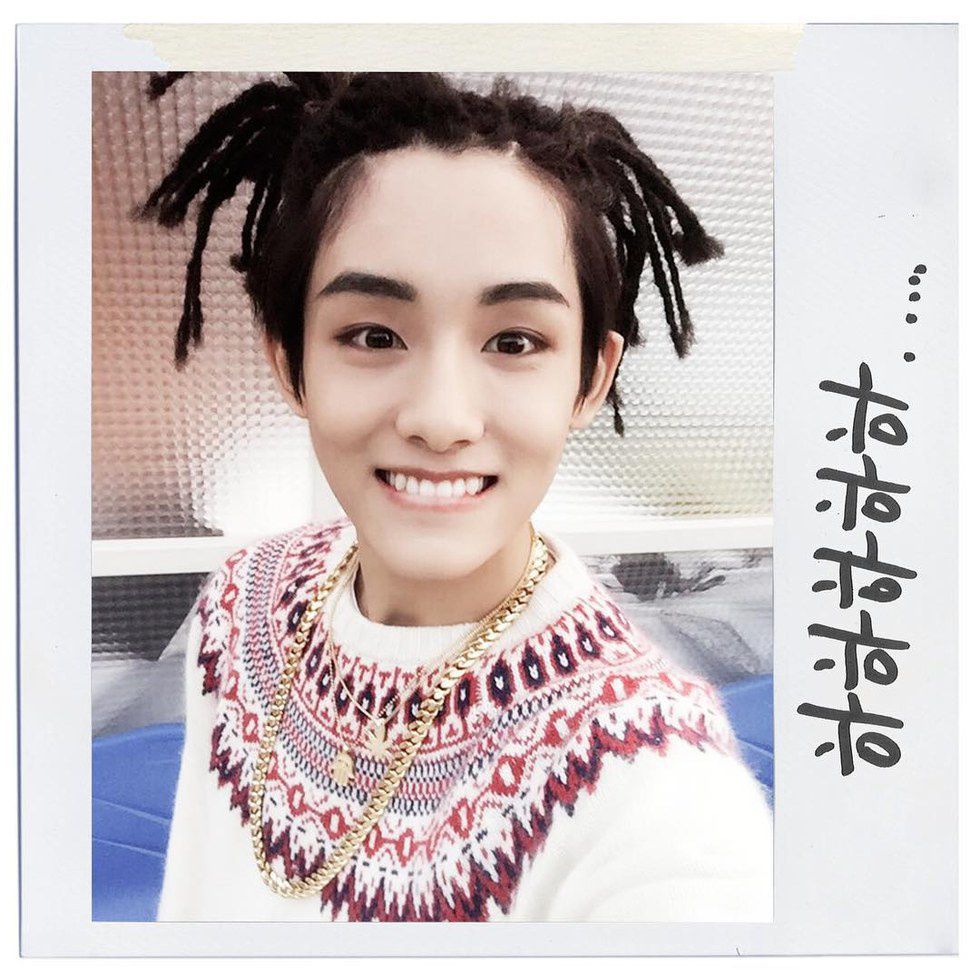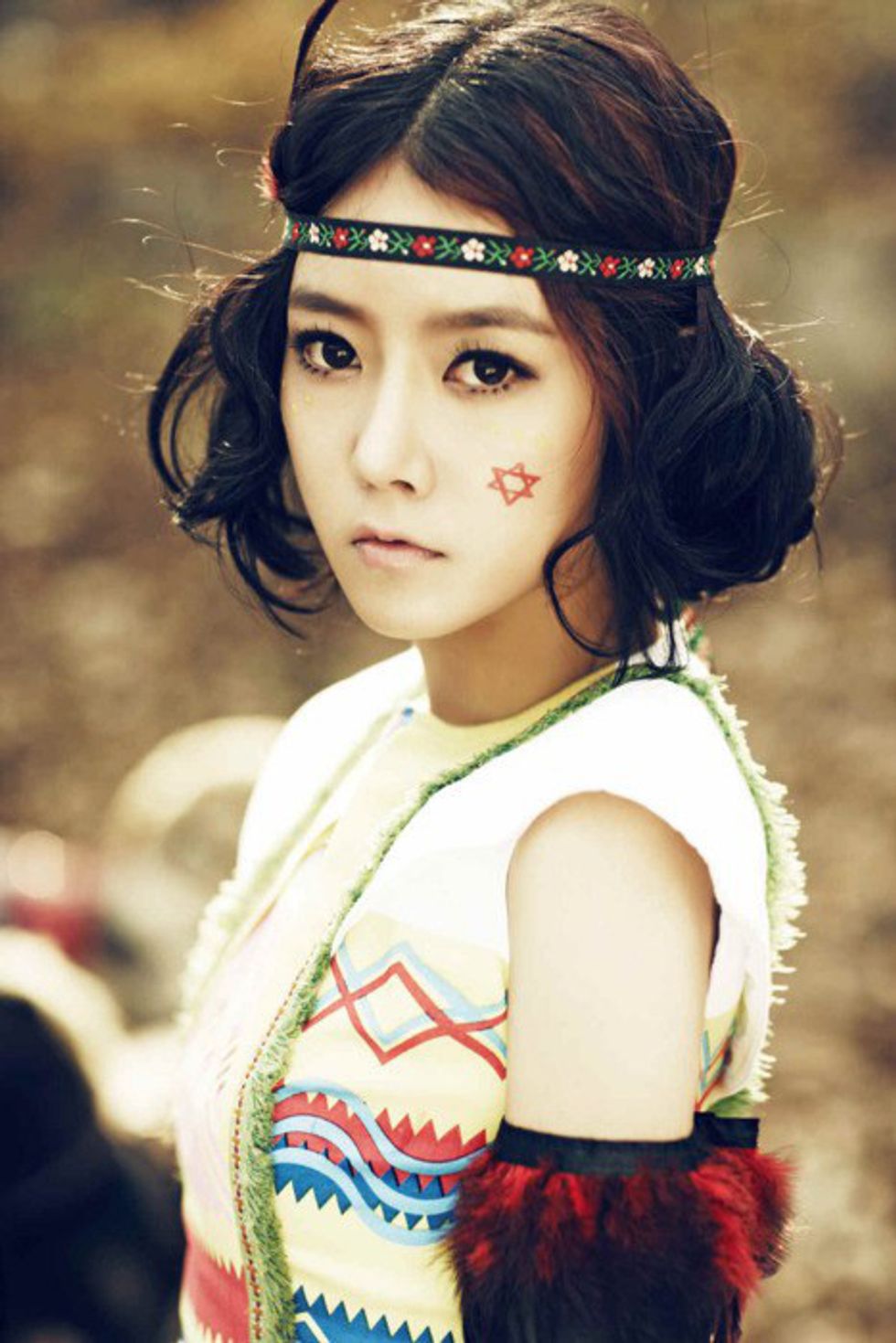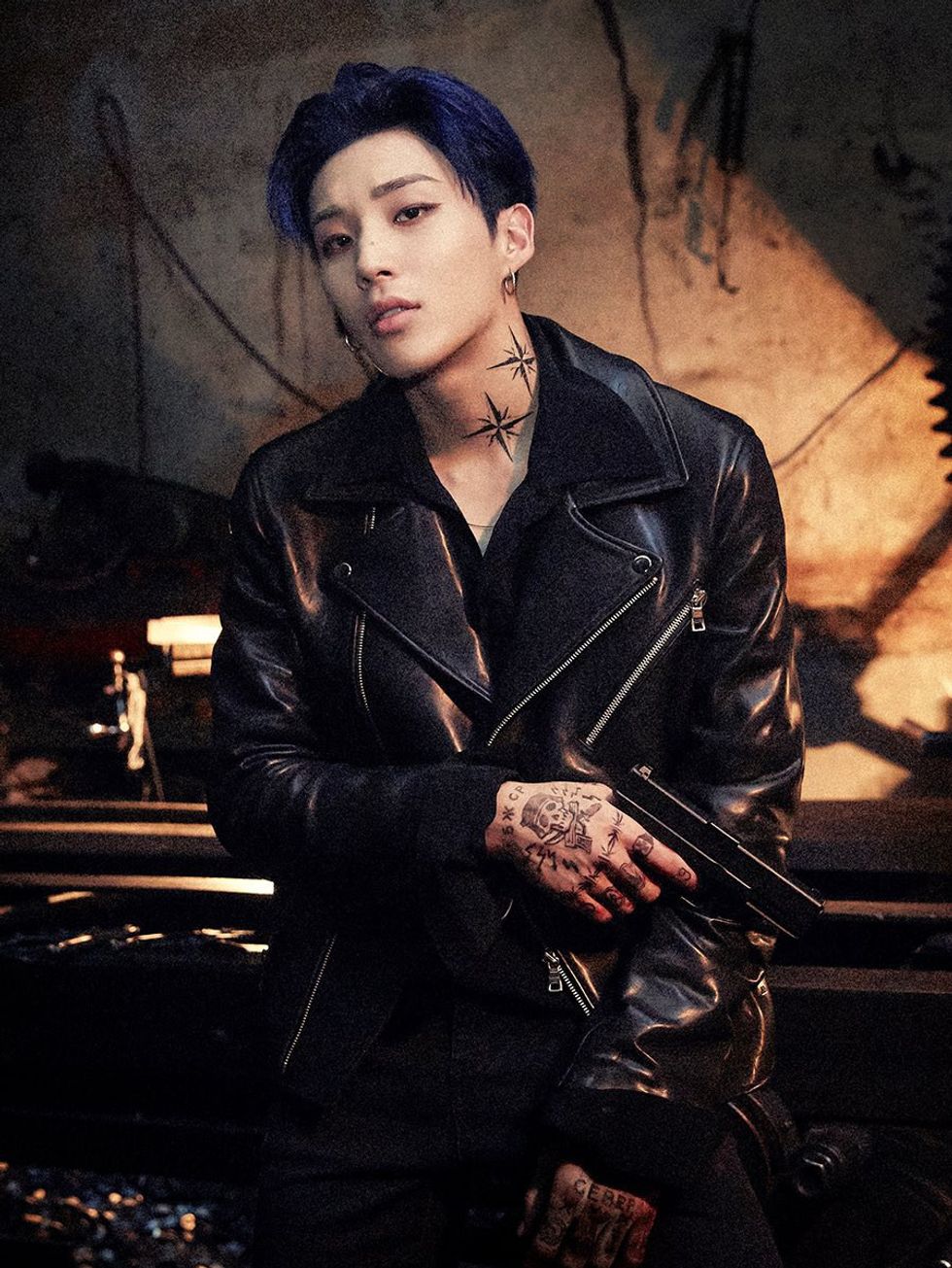With the release of anything will, of course, also come with words of praise and criticism, as with NCT 127's 2nd mini album "Limitless." Overlooking aesthetic reasons, there was much to be desired of the hairstyles that some of the members had because there seemed to be...cultural appropriation in the works?

The Korean pop music industry's appropriation of cultures is a long and sordid affair.
T-ara's 2010 release of "YaYaYa" and MC Mong's comeback song "Indian Boy" both stereotyped Native American culture by depicting "savage" Native Americans and by wearing headdresses which, as stated by this Tumblr user of Native American ancestry, "is supposed to be worn by someone who’s earned it. If it’s not yours, you don’t touch it."
(Not only does Soyeon from T-ara adopt the "Native American chic" concept but also has a tattoo of the Star of David...)
G-Dragon has donned blackface on multiple occasions, has said the n-word and appropriates black hairstyles such as afros and cornrows. In his new mini album "R.EAL1ZE," VIXX member Ravi wears cornrows — a bandwagon concept EXO's Kai jumped on years ago with his infamous cornrows. B.A.P's Jongup's tattoo in a "Skydive" teaser photo below included a Jewish slur in Russian, while Oh My Girl's "Windy Days" MV had no notable Indian or South Asian influence, but fans picked up on the musical influence and dubbed the girls as "curry-dols." Due to the popularity garnered from this new nickname, on July 2 during a fan meeting, they covered a song called Norazo. Norazo is problematic and racist because of its blackface and the lyrics, such as "It’s yellow, spicy, and although it doesn’t smell nice, Taj Mahal,” and “Shanti shanti, yoga fire! I love hot curry!"The list is not exhaustive and can go on and on. In fact, there are several sites that document racist, disrespectful and appropriating actions and remarks of K-pop stars. The people named above aren't the only offenders of cultural disrespect, but what does this mean for the K-pop industry? Will the cycle of vicious insults and stereotypes continue to ensue? Well no, not necessarily.
If K-pop really wishes to reach and expand internationally — especially to the West — it has to realize what it is doing wrong. We can't expect K-pop stars and their entertainment companies to become instantly knowledgeable about what's right and what's wrong though. Knowing how and why something is disrespectful to another culture does take time to learn. However, because South Korea is a highly homogenous society (made up of 99 percent Koreans), it's likely that they have a hard time realizing and understanding of foreign cultures and have grown up in a society that has taught them that this way of doing something is "okay" without questioning if it really is — we all should be careful of the latter.While it may take some time before we see big changes in the Korean entertainment industry, little by little the amount of offensive content has begun to decrease, mostly due to more awareness and education of other cultures. K-pop stars used to be able to do blackface all they wanted and say the n-word, but now they would face serious backlash both from domestic and international fans.
As the Hallyu wave continues to sweep across the world, I'm interested in how Korea and more specifically their entertainment industry will deal with future cultural appropriation and racist actions and remarks. Whether or not the industry will continue to reform the way it thinks and acts is a mystery, but one thing's for sure. Fans will not stand for any further insults and will call offenders out for their actions.








 Energetic dance performance under the spotlight.
Energetic dance performance under the spotlight. Taylor Swift in a purple coat, captivating the crowd on stage.
Taylor Swift in a purple coat, captivating the crowd on stage. Taylor Swift shines on stage in a sparkling outfit and boots.
Taylor Swift shines on stage in a sparkling outfit and boots. Taylor Swift and Phoebe Bridgers sharing a joyful duet on stage.
Taylor Swift and Phoebe Bridgers sharing a joyful duet on stage.












